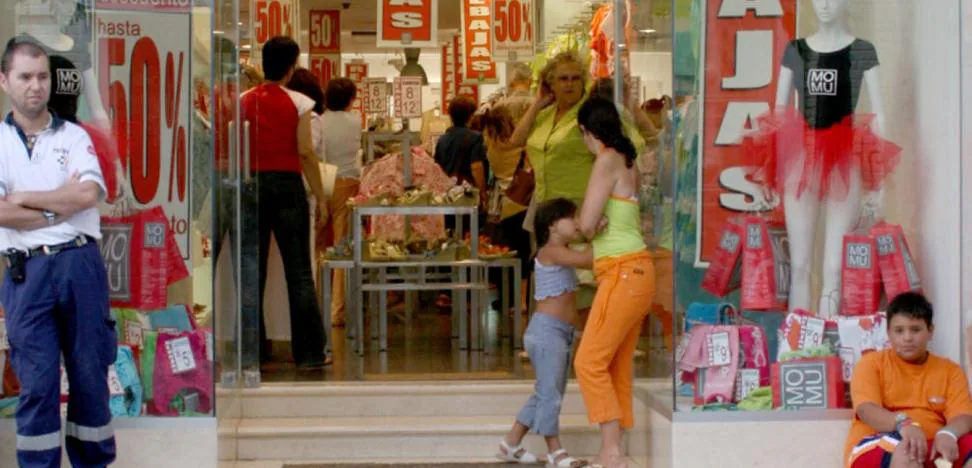The Government is preparing a new Trade Law that will make opening holidays more flexible and extend

The new text will also modify what is related to rebates, which are now liberalized. /
It is intended to raise the allowed days to 12 and establish mechanisms to increase them in certain times and situations.
The Government of the Canary Islands is working on the elaboration of a
new trade law to replace the current one, from 2012, and respond to the new demands of the sector and consumers. The
transformation that the commercial sector has experienced in the last decade and especially in the last two years due to the pandemic requires this legislative review.
In order to draft the new regulatory text and collect the proposals and needs of the interested sectors, groups and actors, the Government of the Canary Islands opened on July 28 a period of
presentation of contributions which will end
September 1st. Regardless of this participatory process, Commerce is clear about a series of changes that yes or yes have to be introduced in the new standard to adapt it to the new times, according to the general director, David Mille. As he points out, after several meetings of a technical nature, three “undeferrable” modifications have been detected.
Enlarge
First, the new text will expand by two, until
twelve o'clockThe number of
business opening days allowed in
Sunday or holiday. Currently in the Canary Islands there are 10 authorized compared to the maximum 16 of the national legislation and the one reached by the autonomous communities of Andalusia and Murcia. Madrid is the paradigm of commercial freedom. In this region, each business decides the days and hours that are most convenient for their business.
In addition, the new standard is intended to be
more flexible and enable the appropriate mechanisms so that if, at any time and for any reason, it is necessary to increase these days of commercial opening, it can be carried out
without the need to change the law. «The one of 2012 a very inflexible legal structure. If the circumstances, as has happened after the pandemic, cause it to be necessary to open one more day on a holiday or Sunday and there is an agreement between the parties, with the current text it could not be done. We want to change this," he says.
mille. At this point, he indicates that it can happen the other way around and that once the 12 days of commercial opening have been implemented, it will be decided that it does not work and return to 10. «We seek that any modification can be made with a decree from the councilor and without the need to change the law," he explains.
Simplify
The General Directorate of Commerce will also simplify in the new law the
business licensingwhich is currently subject to a processing system «
outdated and that it is not in line with the guidelines of the European Union.
Mille explains that they want to give the Directorate of Commerce a greater role in the granting of licences, since it currently acts as a "mere manager". "Our
paper it's right now
residual. We are not responsible because they send the reports of other administrations such as the councils in the part of highways and the city councils in regards to urban planning. We collect the papers and send them to the competent administrations. If the report is favorable we give the license, if it is unfavorable we reject it. This has to change », he says.
As he explains, the objective is that if a commercial license is going to be granted there is a
business report to determine if the project is acceptable or not for the commercial fabric of the islands.
also searched
simplify and that the Government of the Canary Islands is not the one who does the work for the interested party. “Ideally, a person applying for a license for a commercial project would submit a
responsible statement declaring that what it proposes complies with current regulations and that later, the competent administrations are in charge of verifying it. Not like now, when what we do in Commerce is to request papers from the interested party and then send it to the competent authorities. “We got it done in four or five months, but the procedure is absurd and has nothing to do with the requirements for simplifying the European procedure,” says Mille.
The Ministry of Commerce trusts to arrive on time and draw up the new norm in this legislature
The Department of Commerce of the Government of the Canary Islands believes that a change in the 2012 law is essential to adapt the regulations to new forms of exchange, such as online commerce. “We are talking about a 2012 law and electronic commerce that has exploded after the pandemic,” says the Director of Commerce, David Mille, who advocates adapting the new commercial structures to the rights of consumers in the new law (such as claim forms 'online'). "All fabrics are adapting to digitization and commerce has become obsolete," he adds.
The regulation of the concept of 'open commercial area' is also raised in the new standard. "We base a large part of the commercial strategy on this concept, but it does not have any regulations and the time has come for it to have some requirements, demands and a form of management," he explains.
Once the first draft of the regulation has been drawn up, it will be sent to the Commerce Observatory, which includes representatives from universities, trade unions, business organizations, chambers, and regional and local administrations (councils and town councils), so that they can analyze it and give the necessary recommendations. contributions they deem appropriate to the text. Mille indicates that the idea is to process the legislative initiative in the short term so that it is approved before the end of the current legislature.
“However, as is often said, the deadlines are not dominated by one but by the circumstances,” indicates Mille, who points out that there are numerous procedures that the text still has to go through once it is drafted and before being approved in the governing council and later, converted into a bill, in the regional Parliament. "We are in an incipient phase but there is still a year of legislature left and we are going to continue with the procedures," he says.











